
'She doesn’t belong here': 'Vanderpump Rules' star Lisa slammed for having Tom Sandoval's back as Lala Kent calls him 'dangerous'
Lisa and Lala Kent had heated up feud over Tom Sandoval cheating scandal in 'Vanderpump Rules' reunion
2023-05-25 13:17
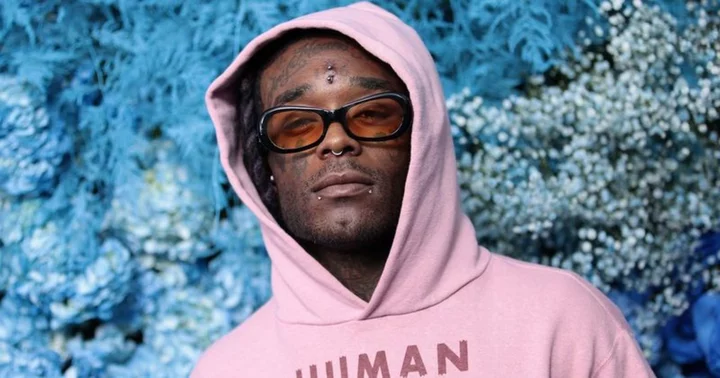
How tall is Lil Uzi Vert? Internet once mocked rapper for being 'lil': 'Never knew he was this short'
Here's how tall is Lil Uzi Vert while comparing his height to fellow rapper and girlfriend
2023-09-21 14:16

Ukraine: Chaos in Russia works to our advantage
By Lidia Kelly Chaos in Russia works to Kyiv's advantage, Ukraine officials said on Saturday, but it remains
2023-06-25 11:45

Sweden, Spain set for clash of styles in World Cup semi-final
First-time semi-finalists Spain face a more seasoned Sweden at the Women's World Cup on Tuesday, with a final against England...
2023-08-15 12:52
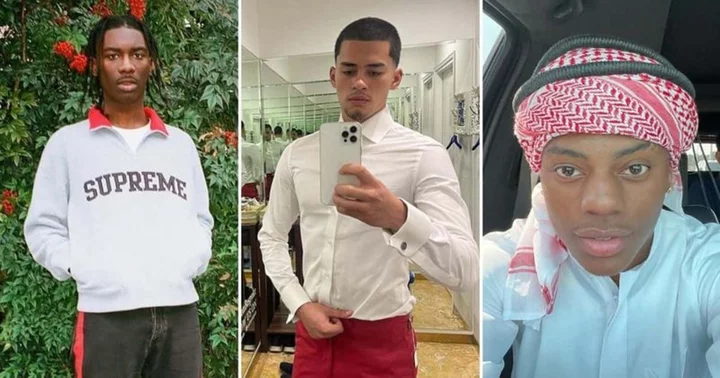
BruceDropEmOff slams Sneako and IShowSpeed for 'faking religion': 'I don't think that s**t is cool'
BruceDropEmOff accused Sneako and IShowSpeed of faking their adherence to Islam in order to gain popularity
2023-06-04 15:58

US says talks with China 'essential' to curb chance of conflict
Dialogue between the United States and China is "essential" to avoiding miscalculations that could lead to conflict, US Defence Secretary Lloyd Austin said Saturday, after Beijing rejected a formal meeting...
2023-06-03 09:47

Milan see off Lazio as Osimhen scores in Napoli romp
AC Milan overcame a struggling Lazio 2-0 on Saturday to provisionally take top spot in Serie A, while Victor Osimhen came off the bench for Napoli and scored...
2023-10-01 02:15

Emergency number back in use after nationwide technical fault
People can once again call 999 in an emergency after services were hit by a nationwide technical fault. BT said it had implemented a back-up platform after issues with 999 calls connecting were reported on Sunday morning. Emergency services across the country have confirmed they are able to receive 999 calls again, but some warned they were still experiencing residual difficulties. A spokesperson for BT said: “Early this morning we experienced a problem with the 999 service. “The situation is fast-moving as we fix the problem and our back up platform is now working – so people should call 999 as usual. “We will provide updates as the issue is resolved.” Cheshire Fire and Rescue Service warned of a 30-second delay to connect to 999, while Suffolk Police said its system may not be working to full capacity and urged people to use 999 only in a genuine emergency. The Metropolitan Police said the back-up system was “not as effective at telling us where you are calling from”. “Help us by having the address of the emergency ready,” the force said. “If you don’t know the address, look around for a street name or obvious landmark.” East Midlands Ambulance Service (EMAS) said that if a 999 call was not successful, people should call 111 for urgent medical help instead. Richard Lyne, strategic commander at EMAS, said: “We urge people to seriously consider the alternative services available and if it’s possible to make your own way to a treatment centre. “For example, if a relative or friend can take you by car.” Problems with the service, which is managed by BT, were first reported at around 8.30am on Sunday and people were told to call 101 in an emergency for police and fire, or 111 in a medical emergency. Several police forces and fire and ambulance services said they were facing issues and said BT had reported a “system failure”.
2023-06-25 22:26

Iron Ore Sheds Nearly 5% After Goldman’s China Property Warning
Iron ore fell for the first time in nine sessions as Goldman Sachs Group Inc. warned that property
2023-06-12 10:56
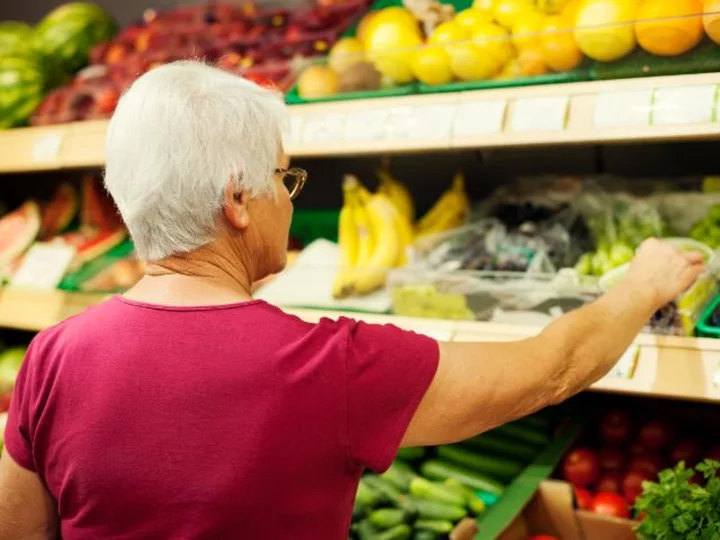
Americans' outlook on retirement darkens to an 11-year low
In the latest sign of economic pessimism, Americans are growing increasingly concerned they won't be able to retire comfortably, according to a Gallup survey shared first with CNN on Wednesday.
2023-05-25 08:27

'Was the blindfold real?' 'AGT' Season 18 fans question authenticity of ventriloquist Brynn Cummings' act
Fans question the authenticity of Brynn Cummings' act on 'AGT' Season 18, sparking a debate over hidden cameras and the true nature of her performance
2023-06-14 09:53

This stacked cybersecurity training course bundle is on sale for under £60
TL;DR: The InfoSec4TC Platinum Membership is on sale for £54.18, saving you 75% on list
2023-08-04 12:20
You Might Like...

'My little love': Brianne Howey shares adorable photo as she welcomes first child with husband Matt Ziering
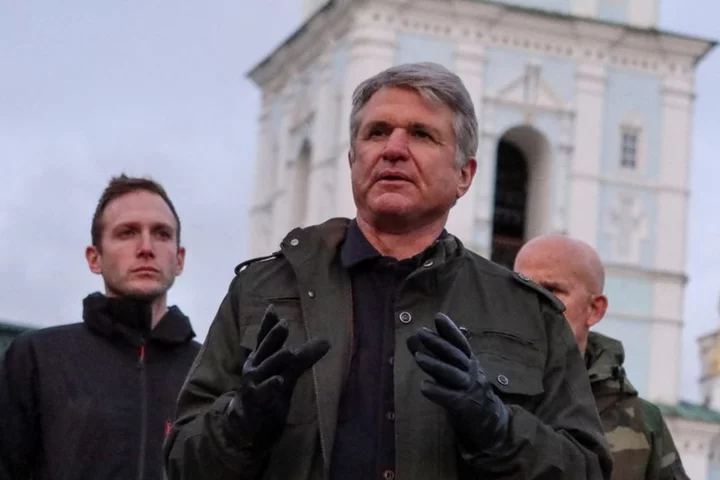
Republicans appeal to far-right conservatives to avert US government shutdown

EU blesses transatlantic data sharing deal
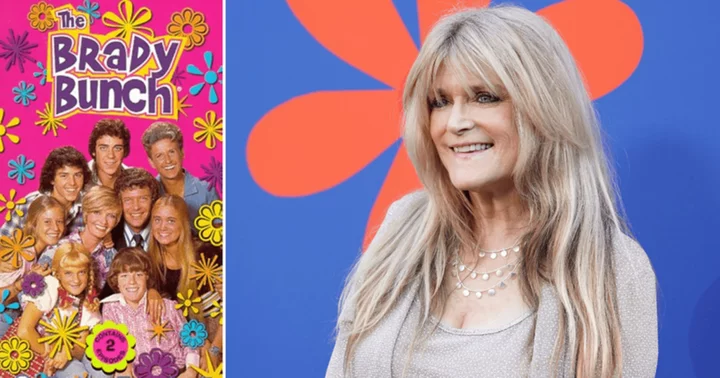
'Brady Bunch' alum Susan Olsen busts rumors about cast affair, calls out her death hoax

2 teens indicted on murder, battery charges in fatal hit-and-run of bicyclist captured on video
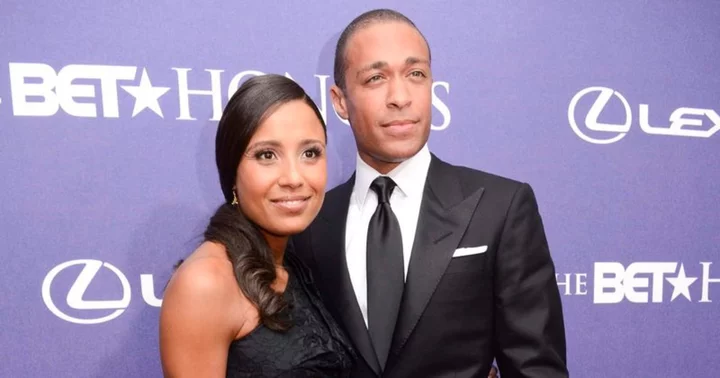
Who is Marilee Fiebig? Former 'GMA' host TJ Holmes' divorce proceedings with ex-wife face 6-month delay in court

From behind bars, Greek far-right populist propels ultra-nationalists

'Love is Blind' Season 5 star Izzy Zapata reveals his 'biggest insecurity' as he looks for unconditional love
